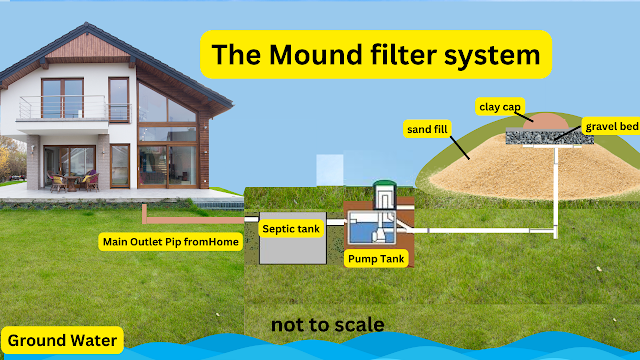Septic Tank Pumping in 2024 Costs
The cost of septic tank pumping in 2024 can vary between $175 and $1,600, depending on factors such as tank size, location, and how often it's pumped. Regular maintenance can help prolong your tank's lifespan and cut down on these costs. Consider not only the immediate expense but also potential future repairs. Experienced service providers can help guide you in these decisions. For savvy homeowners, cost-saving strategies await. Keep exploring this topic to discover how to optimize these strategies and navigate the selection of a septic service provider for a cost-effective solution.
FOR FAST LOCAL SEPTIC TANK PUMPING SERVICES ALL LOCATIONS COVERED 40 YEARS RELIABLE SERVICE
Understanding Septic Tank Pumping Costs
Understanding the factors that impact septic tank pumping costs is essential for effective budgeting and maintaining a well-functioning wastewater system. Pricing comparisons reveal that costs can fluctuate between $175 to $1,600, primarily due to tank size, location, and frequency of pumping.
Regular maintenance tips can extend the lifespan of your septic system and reduce overall costs. Budget considerations should factor in both immediate costs and potential future repairs. It's recommended to pump your septic tank every three to five years, depending on household usage.
Effective Cost-Saving Strategies
To effectively manage your septic system costs, it's important to explore cost-saving strategies that not only reduce the immediate expenses but also prevent potential future repairs.
DIY techniques, such as regular inspection for damage or blockages, can help identify problems early on. Maintenance tips include cautious use of water, avoiding flushing non-degradable items, and using bacteria-friendly cleaning agents to promote a healthy septic environment.
An effective solution is to follow frequency recommendations for pumping, typically every 3 to 5 years, depending on the tank size and household usage. Tank size considerations are also vital; larger tanks need more frequent pumping, but this can be cost-effective in the long run by preventing damages.
Optimizing these strategies will greatly reduce your septic maintenance costs.
How to Choose a Septic Service
Selecting the appropriate septic service can be a challenging task, but with careful consideration of factors such as experience, cost, customer reviews, and service scope, you'll be equipped to make an informed decision.
Service selection shouldn't be taken lightly. An experienced provider will know the ideal pumping frequency for your tank's size and usage. They'll offer a fair cost comparison between different maintenance plans, informing you of potential savings. Follow their maintenance tips and expert advice to avoid major issues down the line.
Key Questions for Septic Companies
When you're in the market for a septic service, it's important to ask potential companies several key questions to make sure they're a good fit for your needs.
Start by discussing pricing negotiation. Are their rates fixed, or is there room for adjustment based on your specific situation?
Next, inquire about their service quality and customer satisfaction. Do they have testimonials or reviews you can look at?
Also, ask about their equipment maintenance practices. Well-maintained equipment is vital for efficient service.
Finally, get a sense of their knowledge on industry trends. Are they using the latest methods and technologies?
These questions will help make sure you choose a company that provides high-quality, cost-effective septic services.
Essential Pumping Process Details
h
Understanding the essential details of the septic tank pumping process can help you make informed decisions about maintenance and cost management. Pumping frequency is critical; generally, septic tanks need pumping every 3-5 years, though this can vary depending on your tank size and household usage. Larger tanks or those getting heavy use may require more frequent service.
Maintenance tips like regular inspections and cautious waste disposal can extend your tank's lifespan and reduce costs. Speaking of cost factors, they include tank size, location, and the degree of cleaning required.
While there are DIY options available for septic tank maintenance, hiring professionals is often safer and more cost-effective in the long run, especially for larger tanks or complex problems.
Our Reliable Data Collection Process
You might be wondering how we gather and verify all the detailed information about septic tank pumping costs and maintenance. Well, it's quite a thorough process.
We study the pumping frequency trends from various sources and compare them with the service quality offered by different providers. The cost breakdowns are checked to make sure you get the most precise and updated information. Customer reviews are invaluable, giving us insight into real-world experiences and satisfaction levels.
FOR FAST LOCAL SEPTIC TANK PUMPING SERVICES ALL LOCATIONS COVERED 40 YEARS RELIABLE SERVICE
Leveraging Additional Resources
Handling the intricacies of septic tank maintenance can be challenging, but utilizing extra resources can greatly enhance your understanding and management of this essential household system.
You'll find maintenance tips like avoiding flushing non-degradable items and limiting water use can greatly reduce the pumping frequency.
Understanding the cost breakdown, including factors like tank size and location, aids in budgeting for this necessary expense. While DIY techniques might seem cost-effective, errors can lead to significant repairs. As a result, professional servicing is recommended.
Research provided by the septic tankers








.png)


Comments
Post a Comment